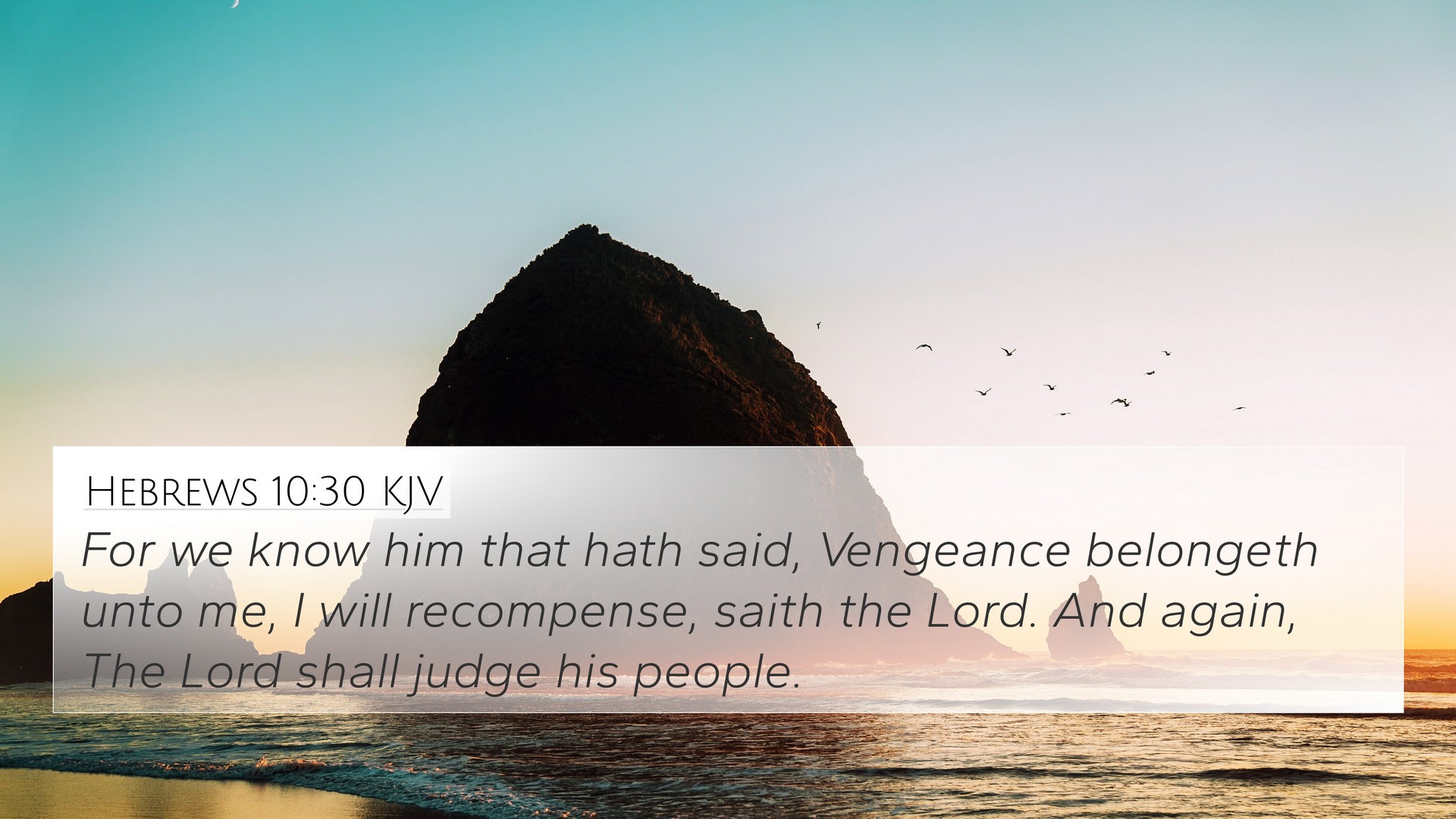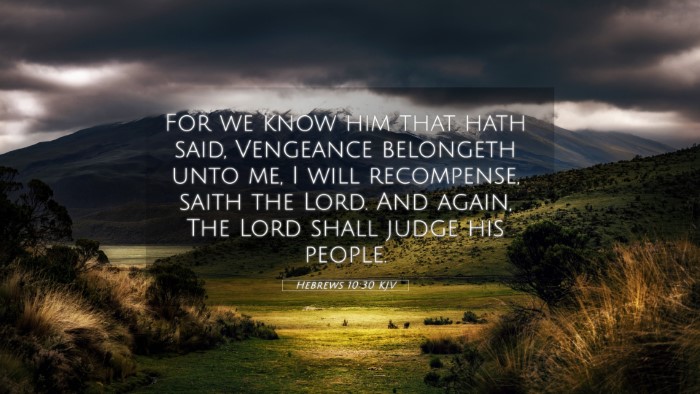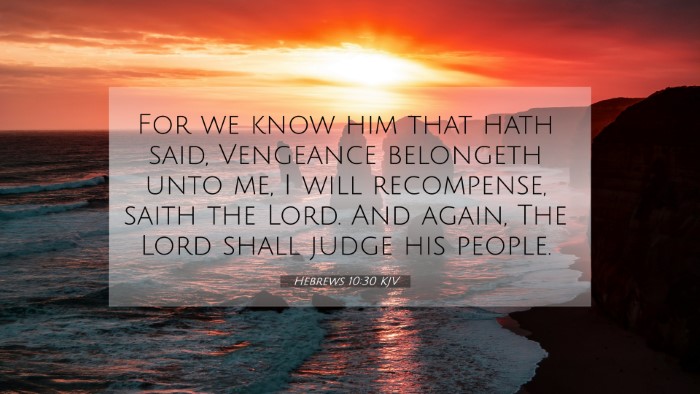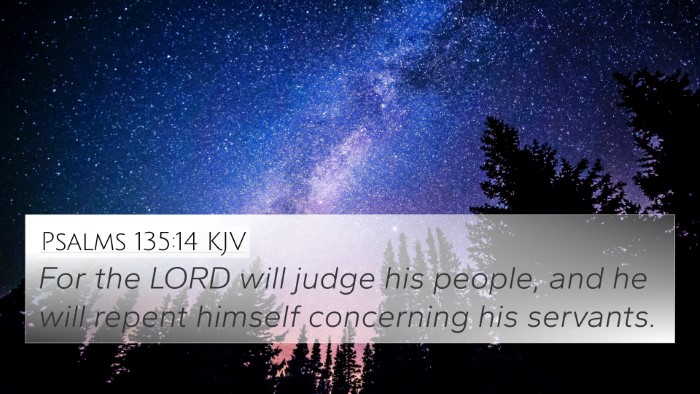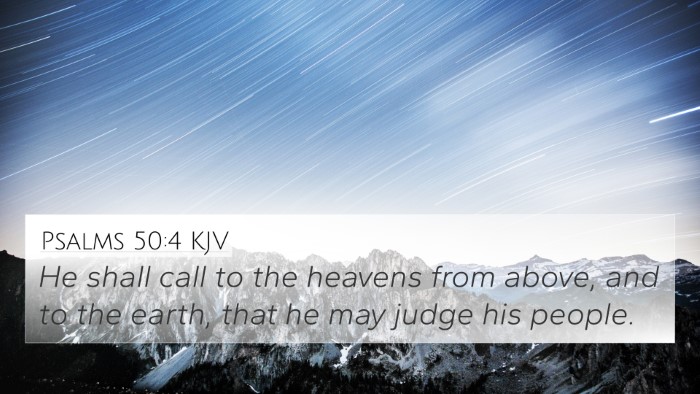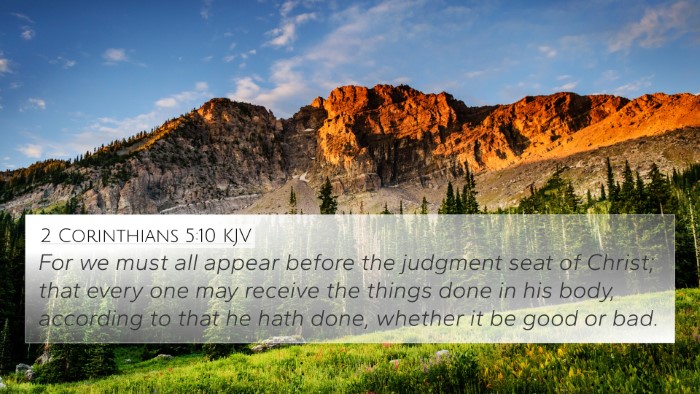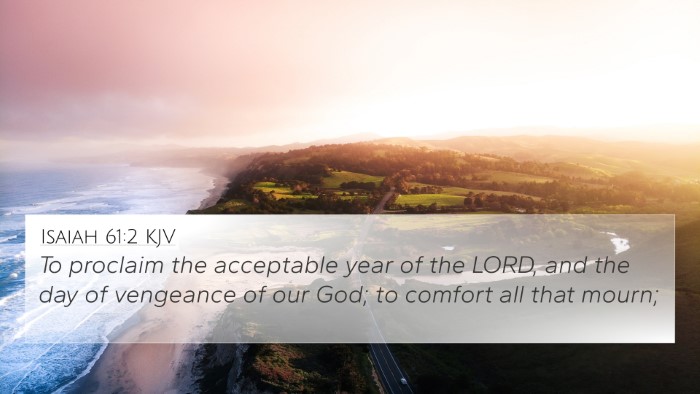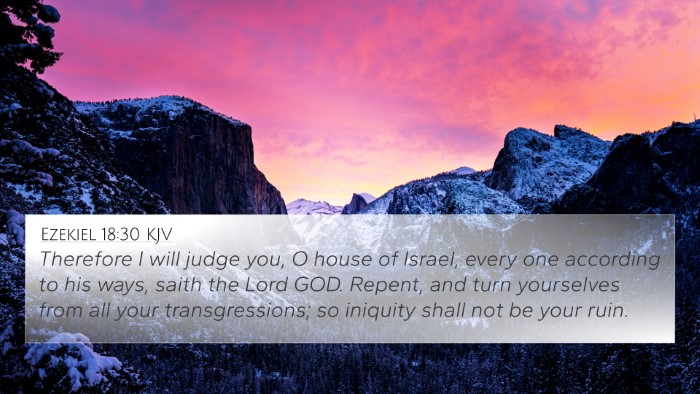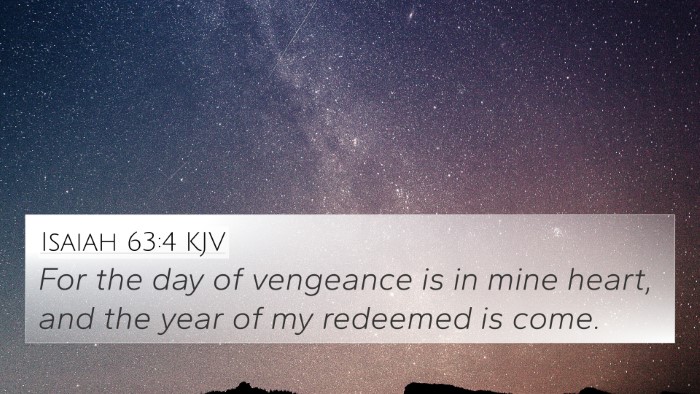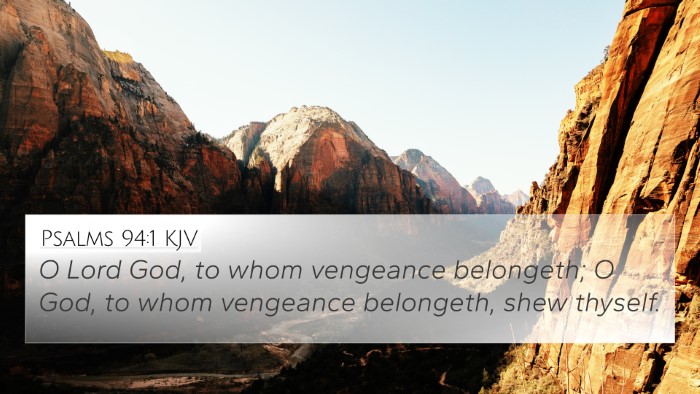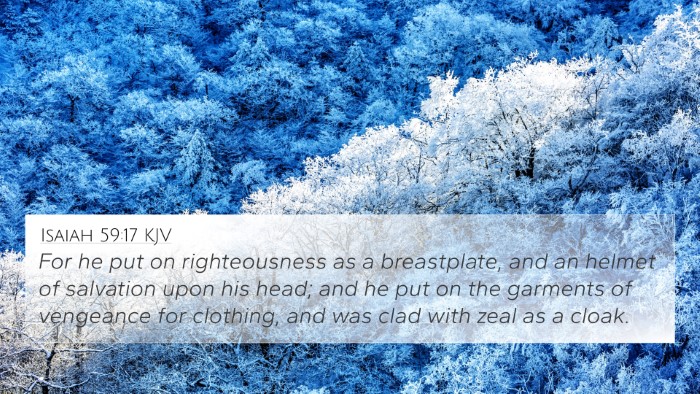Understanding Hebrews 10:30
Hebrews 10:30 states, "For we know him that hath said, Vengeance belongeth unto me, I will recompense, saith the Lord. And again, The Lord shall judge his people." This verse encapsulates a profound warning about God’s judgment and retribution against those who deliberately turn away from His truth.
The author of Hebrews emphasizes that God's promises of vengeance should not be taken lightly. It fortifies the idea that God is not only a God of love but also a God of justice, who holds His people accountable for their actions.
Verse Meanings from Commentaries
Insights into this verse from various public domain commentaries reveal several layers of meaning and instruction:
-
Matthew Henry: Henry discusses the weight of God's vengeance and emphasizes that it is inevitable for those who disregard His covenant. He highlights the importance of fearing God’s judgment, which serves both as a warning and a motivation for believers.
-
Albert Barnes: Barnes notes that this verse reaches back to the Old Testament, where the principle of divine retribution is established in the Law. He stresses the seriousness of forsaking God’s commands, underscoring that judgment begins with the household of God.
-
Adam Clarke: Clarke emphasizes the phrase "the Lord shall judge his people," suggesting that this judgment is not merely punitive but serves to refine and purify believers. He points out that God's vengeance is closely linked with His protective love for His people.
Key Themes and Connections
The themes in Hebrews 10:30 connect strongly to various other scriptural passages, illustrating the consistent message of God’s justice throughout the Bible. The following Bible verses are pertinent cross-references that echo similar themes:
- Romans 12:19 - "Dearly beloved, avenge not yourselves, but rather give place unto wrath: for it is written, Vengeance is mine; I will repay, saith the Lord."
- 2 Thessalonians 1:6 - "Seeing it is a righteous thing with God to recompense tribulation to them that trouble you."
- Deuteronomy 32:35 - "To me belongeth vengeance, and recompense; their foot shall slide in due time: for the day of their calamity is at hand, and the things that shall come upon them make haste."
- Hebrews 12:29 - "For our God is a consuming fire."
- 1 Peter 4:17 - "For the time is come that judgment must begin at the house of God: and if it first begin at us, what shall the end be of them that obey not the gospel of God?"
- Matthew 7:2 - "For with what judgment ye judge, ye shall be judged: and with what measure ye mete, it shall be measured to you again."
- Ecclesiastes 12:14 - "For God shall bring every work into judgment, with every secret thing, whether it be good, or whether it be evil."
Bible Cross-Reference Tools
To study these connections thoroughly, several tools for Bible cross-referencing can enhance one's understanding:
- Bible Concordance: A useful resource to find specific words and their occurrences throughout the Bible.
- Bible Cross-Reference Guide: Helps in identifying related verses and their context.
- Bible Reference Resources: Collections of thematic studies connecting various scriptures.
- Bible Chain References: Lists that show passages connected by similar themes or topics.
Conclusion
Hebrews 10:30 serves as a reminder of the seriousness of God's judgment and the importance of adhering to His teachings. Through various public domain commentaries and cross-referenced scripture, it is evident that the Bible consistently warns against turning away from God. Studying these connections through cross-referencing not only enriches understanding but also deepens faith in God’s ultimate justice and love.
